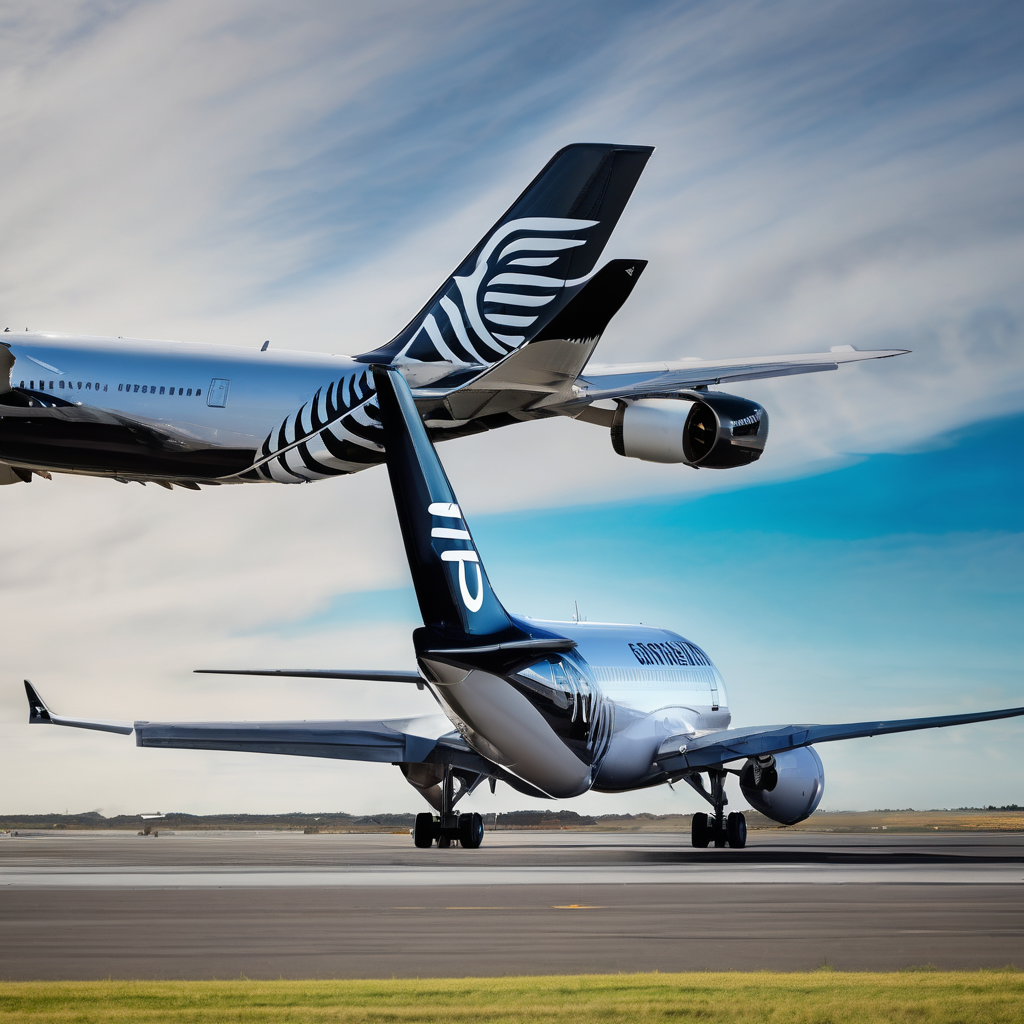Air New Zealand has announced a significant revision to its financial expectations, warning that it is poised to report a loss for the first half of the financial year. This comes as soft local economic conditions have adversely affected expectations for revenue growth from domestic and U.S. bookings. Increased costs related to engine leasing have further compounded the airline’s challenges.
In a statement, Air New Zealand indicated it no longer anticipates the previously forecasted 2% to 3% revenue increase, as current forward bookings show insufficient momentum. The airline is now expecting a loss before tax ranging between NZ$30 million ($17.20 million) to NZ$55 million for the six months ending December 31. This marks a stark contrast to the NZ$34 million profit before tax reported in the second half of the previous financial year.
The company’s shares fell by 1.7% to NZ$0.585 following the announcement. Equity analyst Angus Hewitt from Morningstar remarked on the negative impacts of the weak economic environment in New Zealand, stating, “The weak economic backdrop is weighing on revenue, and persistent engine issues are a material cost drag.” However, he expressed optimism for the future, believing Air New Zealand’s fortunes could improve as engine issues resolve, additional capacity becomes available, and economic conditions begin to stabilize.
The airline’s difficulties have been exacerbated by competition from Australian carriers like Qantas Airways and Virgin Australia, amid a small domestic market. Air New Zealand indicated that weaker-than-expected revenue would contribute an estimated NZ$50 million loss in the first half. Compounding these operational challenges are delays in aircraft deliveries and the grounding of jets, with estimates suggesting that between nine and 11 aircraft have been out of service at times since the beginning of the financial year due to recurring engine issues.
Further financial burdens have emerged with projected engine lease expenses now expected to be about NZ$20 million higher than initially anticipated, following the recognition of end-of-lease obligations on previously excluded short-term aircraft leases. Additionally, obligations under the Carbon Offsetting and Reduction Scheme for International Aviation (CORSIA) have risen by approximately NZ$10 million since August, increasing fuel costs.
Despite these hurdles, the outlook remains cautiously positive, as analysts anticipate that any improvements in engine reliability and increased capacity could result in a meaningful recovery in profitability for Air New Zealand in the latter half of the financial year.
